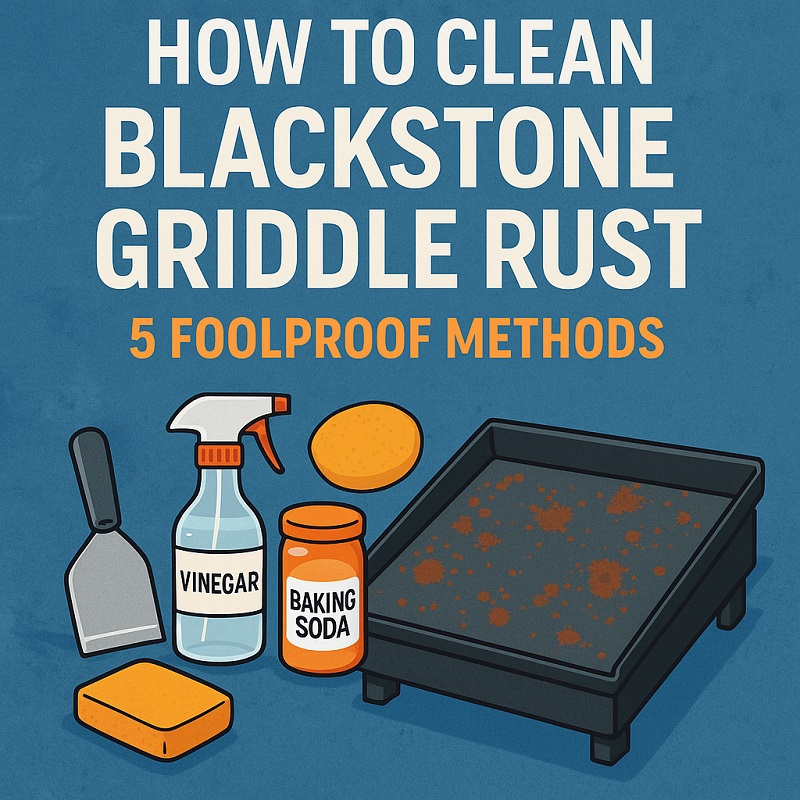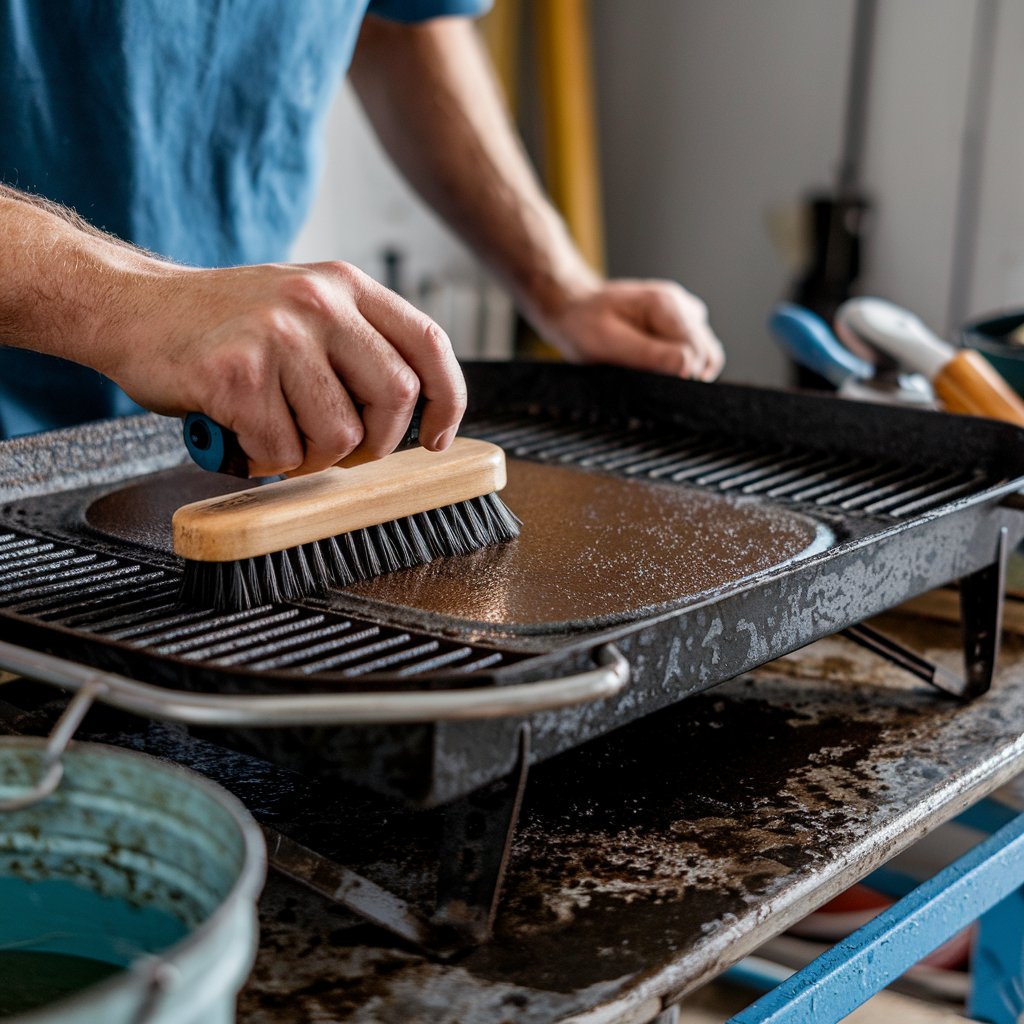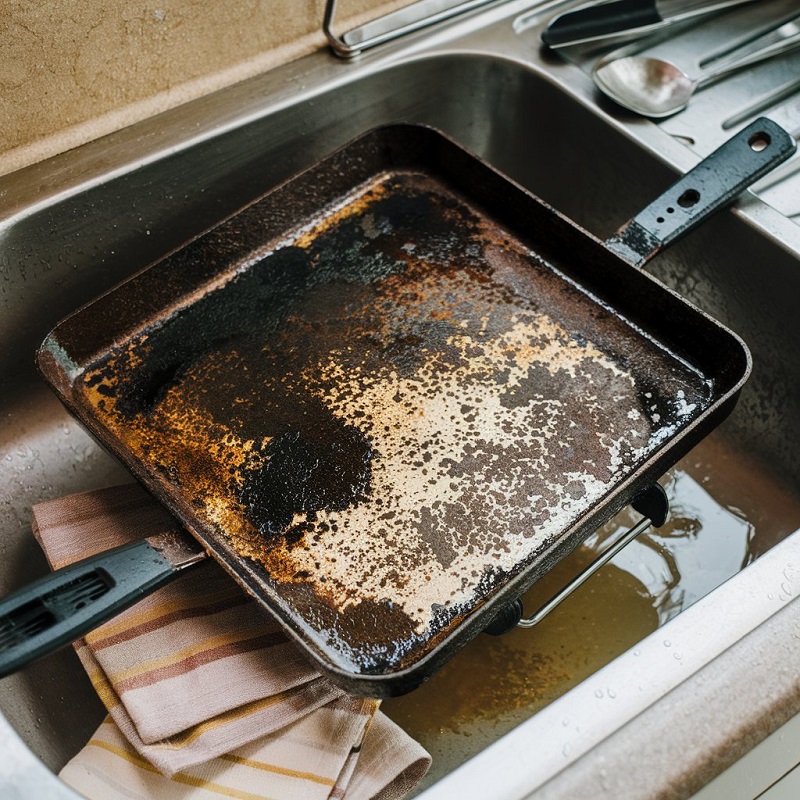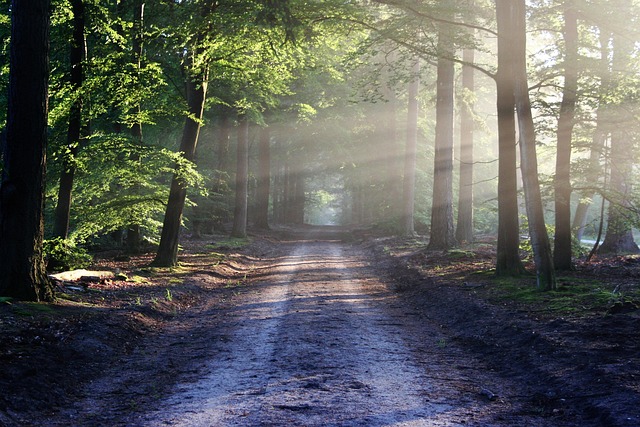A rusty Blackstone griddle can turn a joyful backyard barbecue into a stressful cleanup ordeal. If you’re wondering how to clean Blackstone griddle rust quickly and safely, you’re in the right place. For housewives across the USA who rely on their griddle for family meals, rust is more than just an eyesore — it’s a food safety hazard and a threat to your appliance’s lifespan.
At The Environmental Blog, we value practical, eco-friendly solutions that fit into busy schedules and align with sustainable living. This complete guide shares five foolproof methods to clean Blackstone griddle rust, prevention strategies, and eco-conscious tips to help you get grilling again safely.
Quick Overview: 5 Easy Eco-Friendly Rust Cleaning Methods
| Method | Best For | Time Needed | Eco-Friendliness |
| Vinegar Soak | Light rust | 30 mins | Excellent |
| Baking Soda Paste | Stubborn rust | 45 mins | Excellent |
| Vinegar + Salt Scrub | Moderate rust | 40 mins | Excellent |
| Potato + Baking Soda | Light rust, no chemicals | 30 mins | Excellent |
| Lemon Juice Scrub | Small stubborn spots | 20 mins | Very Good |
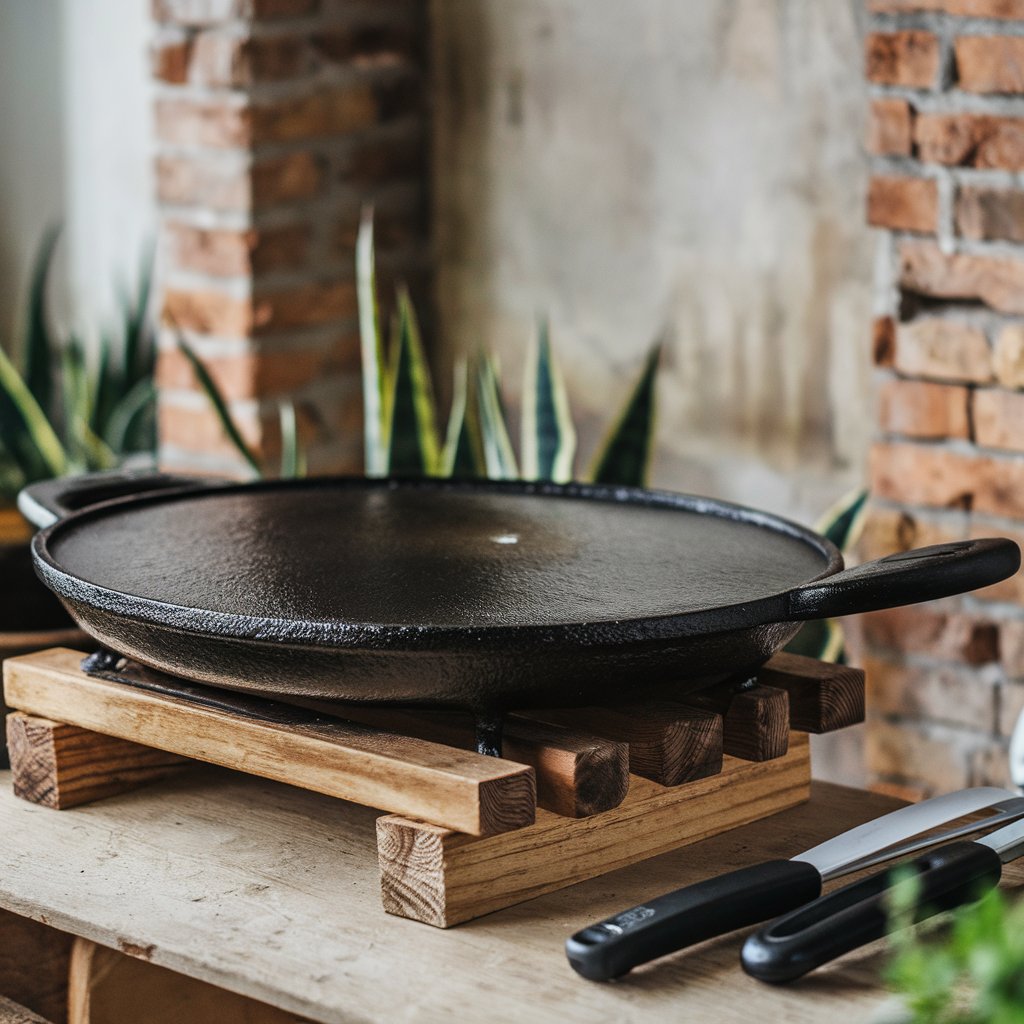
Why Rust on Your Blackstone Griddle Is a Big Deal
What Causes Rust?
Rust is the result of iron in your griddle reacting with oxygen and moisture, forming iron oxide. Common triggers for housewives include:
- Improper Storage: Leaving the griddle uncovered in humid or rainy conditions.
- Neglecting Seasoning: Skipping the oil layer that protects the metal surface.
- Infrequent Cleaning: Allowing food residue and grease to trap moisture.
- Environmental Factors: Exposure to dew, snow, or coastal air accelerates oxidation.
The Problems Rust Creates
Rust isn’t just cosmetic—it impacts your griddle in multiple ways:
- Health Concerns: Rust flakes can contaminate food, potentially affecting taste and safety.
- Cooking Performance: Rust creates uneven surfaces, causing food to stick and cook inconsistently.
- Aesthetic Damage: A rusty griddle looks neglected, clashing with a clean, inviting outdoor kitchen.
- Long-Term Damage: Untreated rust can corrode the metal, forcing costly repairs or replacement.
Environmental Considerations
Harsh chemical rust removers can pollute waterways and harm ecosystems, which conflicts with the values of The Environmental Blog’s readers. This guide prioritizes biodegradable, non-toxic methods to clean your griddle sustainably, ensuring your efforts benefit both your home and the planet.
Tools and Materials Needed
To tackle rust effectively while keeping your cleaning eco-friendly, gather these supplies:
- White Vinegar: A natural acid to dissolve rust safely.
- Baking Soda: A mild abrasive for scrubbing tough spots.
- Food-Grade Mineral Oil: For seasoning the griddle to prevent future rust.
- Steel Wool (Medium Grade): Ideal for scrubbing without damaging the surface.
- Microfiber Cloths: Reusable and sustainable for wiping and drying.
- Griddle Scraper: A Blackstone-compatible tool for removing loose rust.
- Spray Bottle: For applying vinegar or other solutions evenly.
- Gloves: To protect hands from rust and cleaning agents.
- Apron: A practical touch for housewives to keep clothes clean.
Optional Tools
- Grill Brush: Useful for larger rust patches.
- Lemon Juice: An alternative acid for one method.
- Potato: A surprising natural cleaning tool (detailed in Method 4).
Where to Source
Choose sustainable, USA-available brands:
- Vinegar and Baking Soda: Found at grocery stores like Walmart or Whole Foods.
- Food-Grade Mineral Oil: Available on Amazon or Blackstone’s official website.
- Microfiber Cloths: E-Cloth or Norwex offer eco-friendly options.
- Griddle Scraper: Purchase from Blackstone or hardware stores like Lowe’s.
5 Foolproof Methods to Clean Blackstone Griddle Rust
Each method below is tailored for housewives, balancing effectiveness, ease, and environmental impact. Choose the one that suits your rust severity and available supplies.
Method 1: Vinegar Soak for Light Rust
Best For: Surface rust or small patches.
- Step 1: Mix equal parts white vinegar and water in a spray bottle (e.g., 1 cup each).
- Step 2: Spray the solution generously over rusty areas. For larger patches, soak a microfiber cloth in the solution and lay it over the rust for 15–20 minutes.
- Step 3: Scrub gently with steel wool in a circular motion to remove loosened rust.
- Step 4: Rinse with clean water and dry immediately with a microfiber cloth.
- Step 5: Season the griddle with a thin layer of mineral oil, heating on low for 15 minutes, then wiping off excess.
- Eco Note: Vinegar is biodegradable and safe for the environment, making this a go-to method for light rust.
Method 2: Baking Soda Paste for Stubborn Rust
Best For: Deep or caked-on rust.
- Step 1: Create a paste with 3 tablespoons baking soda and 1 tablespoon water.
- Step 2: Apply the paste to rusty areas using a microfiber cloth or gloved fingers.
- Step 3: Let the paste sit for 10 minutes to break down rust.
- Step 4: Scrub with steel wool or a grill brush, focusing on tough spots.
- Step 5: Rinse thoroughly and dry with a microfiber cloth.
- Step 6: Season the griddle as described in Method 1.
- Eco Note: Baking soda is non-toxic and safe for disposal, minimizing environmental harm.
Method 3: Vinegar and Salt Scrub for Moderate Rust
Best For: Rust that’s spread across larger areas.
- Step 1: Sprinkle coarse kosher salt over rusty spots (about 2 tablespoons for a 36-inch griddle).
- Step 2: Spray white vinegar over the salt until it forms a gritty paste.
- Step 3: Let the mixture sit for 10–15 minutes to loosen rust.
- Step 4: Scrub with steel wool or a griddle scraper, using the salt’s abrasiveness to lift rust.
- Step 5: Rinse and dry thoroughly, then season the griddle.
- Eco Note: Salt and vinegar are pantry staples that won’t harm the environment, making this method both effective and sustainable.
Method 4: Potato and Baking Soda for Eco-Friendly Shine
Best For: Light rust with a desire for a natural, chemical-free approach.
- Step 1: Cut a potato in half and sprinkle baking soda on the cut side.
- Step 2: Rub the potato (baking soda side down) over rusty areas. The potato’s oxalic acid and baking soda’s abrasiveness work together to lift rust.
- Step 3: Scrub gently with a microfiber cloth to remove residue.
- Step 4: Rinse with water, dry thoroughly, and season the griddle.
- Eco Note: Potatoes are biodegradable, and this method produces zero waste, perfect for eco-conscious housewives.
Method 5: Lemon Juice and Steel Wool for Quick Results
Best For: Small, stubborn rust spots needing fast attention.
- Step 1: Squeeze fresh lemon juice over rusty areas or use bottled lemon juice (about ¼ cup).
- Step 2: Let the juice sit for 5–10 minutes to dissolve rust with its citric acid.
- Step 3: Scrub with medium-grade steel wool, focusing on affected areas.
- Step 4: Rinse, dry, and season the griddle.
- Eco Note: Lemon juice is natural but less cost-effective than vinegar. Use it sparingly for quick fixes.
Preventing Future Rust
Rust prevention saves time and extends your griddle’s life. These tips are designed for busy housewives who want low-effort maintenance.
Proper Storage
- Store the griddle in a dry, covered area like a garage or shed.
- Use a fitted Blackstone griddle cover for outdoor storage (available on Blackstone’s website).
- Avoid stacking items on the griddle to prevent moisture buildup.
Regular Seasoning
- Season every 4–6 uses or monthly for infrequent use.
- Quick Seasoning Steps:
- Heat the griddle on low (250°F).
- Apply a thin layer of food-grade mineral oil.
- Let it smoke for 10–15 minutes.
- Wipe off excess oil and cool.
- This creates a protective barrier against moisture and oxygen.
Post-Use Cleaning
- Scrape food residue with a griddle scraper while the griddle is warm but safe to touch.
- Wipe with a damp microfiber cloth to remove grease.
- Apply a thin layer of mineral oil before storing.
Eco-Friendly Maintenance
- Avoid chemical cleaners that strip seasoning and pollute waterways.
- Use reusable microfiber cloths to reduce waste.
- Filter rusty water through a coffee filter before disposal to trap particles.
Common Mistakes to Avoid
Avoid these pitfalls to ensure a spotless griddle:
- Using Harsh Chemicals: Products like industrial rust removers damage seasoning and harm the environment. Stick to natural methods.
- Skipping Seasoning: Without oil, the griddle is prone to rust. Always season after cleaning.
- Leaving Moisture: Even a drop of water can trigger rust. Dry thoroughly after rinsing.
- Ignoring Early Rust: Small spots can spread quickly. Address rust immediately.
- Over-Scrubbing: Excessive force with steel wool can scratch the surface, inviting rust. Use gentle pressure.
FAQs for Housewives
Can I combine methods for better results?
Yes! For example, use the vinegar soak (Method 1) followed by the baking soda paste (Method 2) for stubborn rust.
How do I know which method to choose?
- Light rust: Method 1 (vinegar) or Method 4 (potato).
- Moderate rust: Method 3 (vinegar and salt).
- Stubborn rust: Method 2 (baking soda) or Method 5 (lemon juice).
Is it safe to cook on a griddle with small rust spots?
Clean small spots thoroughly before cooking. Large rusty areas can affect food safety and taste, so avoid using until cleaned.
How often should I check for rust?
Inspect your griddle monthly or after heavy use, especially if stored outdoors.
Can I use these methods on other grill types?
Yes, but check the manufacturer’s guidelines, as some surfaces (e.g., stainless steel) may require different care.
Sustainable Cleaning for a Greener Home
At The Environmental Blog, we’re passionate about eco-friendly practices that make your home cleaner and the planet healthier. Using natural ingredients like vinegar, baking soda, and even potatoes to clean your Blackstone griddle reduces chemical pollution and household waste. By maintaining your griddle properly, you’ll extend its lifespan, reducing the need for replacements and conserving resources.
- Share your favorite rust-cleaning method in the comments on The Environmental Blog.
- Subscribe to our newsletter for more sustainable home maintenance tips.
- Follow us on social media for eco-conscious inspiration for busy housewives.
Conclusion
A rusty Blackstone griddle doesn’t have to derail your family’s grilling plans. With these five foolproof methods—vinegar soak, baking soda paste, vinegar and salt scrub, potato and baking soda, and lemon juice—you can clean Blackstone griddle rust and restore a spotless surface. Tailored for housewives who value efficiency and sustainability, this guide equips you with eco-friendly techniques, prevention strategies, and answers to common questions. Try one of these methods today, and visit The Environmental Blog for more ways to keep your home green, clean, and ready for delicious meals!


